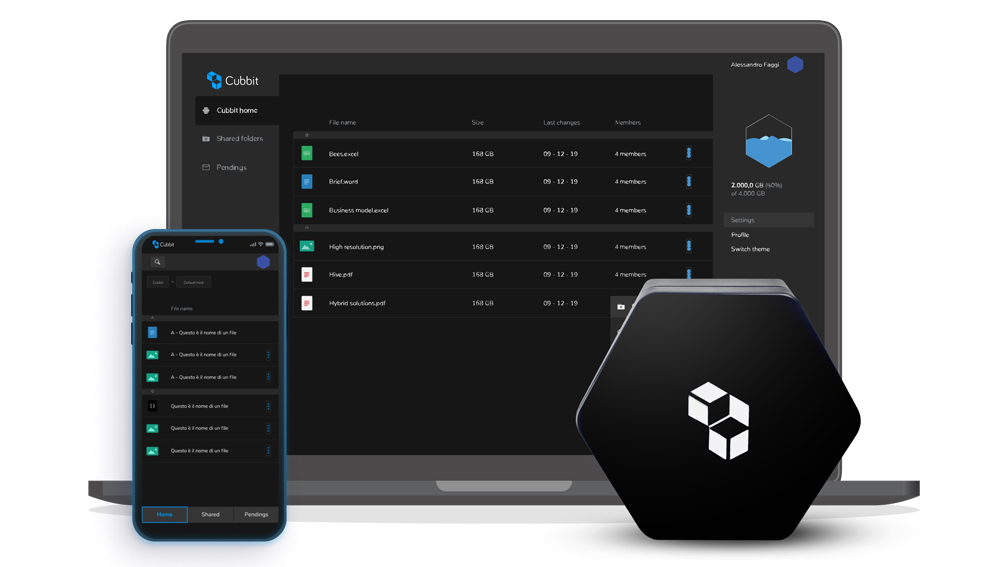Be Your Own Cloud Service Provider
Review by Erik Vlietinck
Imagine a cloud service that you have control of, that secures data to the max, and that doesn’t require you to pay subscription fees. It exists. It’s the Italian-made Cubbit and the device by which you access it is called a Cubbit Cell.
The Cubbit Cell, the part you own, is a hexagonal device that you hook up to your Internet router. It’s no design gem, but the software makes up for that. The setup process couldn’t be more user-friendly and the interface does have that refined Italian signature design I was expecting.
You can use Cubbit for anything where you’d use services such as Dropbox, Box, Sync, or iCloud. You can share with a link to a folder or a file. If you don’t know the receiver, it’s a good idea to protect the link with the AES-256 encryption key. Storing files in the Cubbit Swarm and not on your disk is possible with a selective sync for uploading to Cubbit without synchronizing them after they’ve been uploaded, unless you turn sync back on.
The Cubbit system uses a zero-knowledge, redundancy-based, decentralized, peer-to-peer protocol. The Coordinator server shares the IP addresses of your Cell with other Cubbit Cells in the Swarm, allowing them to connect to each other.
Once you upload files to your Cubbit Cell, the Cell encrypts them and splits them into 24 parts, 12 shards of which are created for redundancy. This procedure guarantees the uptime of the distributed storage, allowing the owner to retrieve the original file from any set of 24 out of 36 shards.
When Cells go offline, recovery is performed automatically. The Coordinator identifies the reliable Cells from those remaining, downloads the available file shards, recovers the missing parts, redistributes them, and then your Cubbit Cell reconstructs the file.
The file doesn’t have to be decrypted to rebuild it, as the encryption is also redundancy-based. The Coordinator server takes all the decisions based on its duty to nullify the probability of losing files, while simultaneously guaranteeing constant and acceptable network performance for everyone. Without human intervention at play, security is not an issue, as your password is known to you alone and the related randomly generated encryption key is stored on your computer.
If you lose your password, all is lost, though. That’s the price you pay for the security of many Cubbit Cells having a small piece of each of your files that cannot be decrypted by anyone else but you. You alone are able to reassemble the original.
After installing the Cubbit Cell, I dropped a few folders in the synchronized Cubbit folder. Even as the system is in its startup phase, it’s no memory or CPU hog. Sharing folders with a link works like with Dropbox or any other cloud service. In the case of a private link, the difference is that you have both a link and a key.
Based on my experiences with the “Hatch” version of Cubbit I wouldn’t hesitate to recommend it to anyone. In fact, in one of the next stages of development, you’ll be able to connect up to 4 TB of storage room to your Cubbit Cell. Find any cloud service provider and see what 4 TB of storage will cost you per year.
If that’s not scaring you off, then the ownership of your data and your privacy being at the mercy of a company that can be acquired by another one with different ideas about cloud services just might. ■






